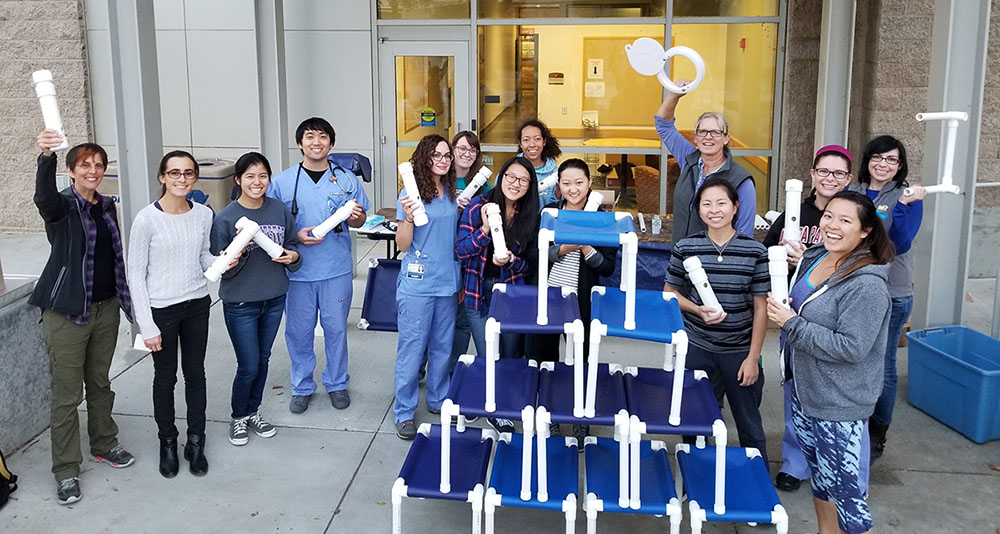In 2001, the UC Davis School of Veterinary Medicine launched the first shelter medicine program in the world. Since then, the Koret Shelter Medicine Program has expanded beyond the basics—how to vaccinate, clean, feed and handle animals—to advance a holistic, prevention-focused and community-centered practice of shelter medicine grounded in transformative protocols, programs, facilities, and cultures that improve the quality of life of animals in shelters and communities and foster mutual animal and human well-being.
Through a One Health/One Welfare approach that recognizes the interdependence of humans, animals, and the environment, the program enhances shelters’ ability to offer housing that supports animal well-being and improves adoptability, while helping manage disease and protect population health, maintain organizational capacity for humane care, and preserve shelter resources. These benefits increase shelters’ ability to respond to urgent community needs and partner with pet guardians to keep pets in their homes when possible.
The Koret Shelter Medicine Program prepares DVM students to make a meaningful impact in communities. Students are trained in high quality, high volume spay/neuter surgery (HQHVSN), a skill crucial to confronting the access to veterinary care crisis driving unnecessary shelter euthanasia and affecting animals and their guardians, shelters, and communities nationwide. The program also builds students’ structural competency to enhance and encourage culturally responsive care and prepare veterinary students to recognize and address barriers to care for companion animals.

The KSMP also offers consultations, training and programming that grows shelter teams’ capacity to advance animal care and lead change grounded in science, oriented toward racial and social justice, and powered by admiration, compassion, and respect for the diversity of the human and animal experience.
With groundbreaking initiatives like The Million Cat Challenge, Maddie’s® Million Pet Challenge, the Shelter Learniverse, and California for All Animals, the KSMP brings together shelter medicine practitioners, shelter teams, and community experts to solve complex challenges and create an ecosystem of care that ensures more animals can thrive in shelters and in their homes, honoring the important role companion animals play in our lives.
Thanks to the support of donors who share our same vision, the program remains a national leader in advancing the quality of life of animals in shelters and communities. Join alumni, foundations, and humane-hearted people across the country who believe shelter medicine is community medicine, and the human-animal bond is paramount.
What is shelter medicine?
Formally recognized by the American Veterinary Medical Association in 2014, shelter medicine is a fast-growing specialty within veterinary medicine that encompasses all aspects of care of animals in shelters and at risk of homelessness. Shelter medicine practitioners work with diverse populations and manage individual animal health and well-being as well as population health and well-being. Nationwide, applicants for the Class of 2020 reported shelter medicine as the second most common area of interest, second only to private practice, according to the Association of American Veterinary Medical Colleges.
As the ASPCA notes, practitioners must be knowledgeable in many areas, “including facility design, operations, animal husbandry, resource management, risk analysis, population management, epidemiology, infectious disease, animal behavior, community outreach, public health, and veterinary forensics, all in addition to traditional medicine and surgery.”
Shelter medicine empowers veterinarians to practice contextualized care, an approach that considers the unique needs and circumstances of individual animals, guardians, and communities. The field offers veterinarians the opportunity to partner with shelters and other community organizations to strengthen and protect the human-animal bond, lead animal health and well-being, and positively impact public health, all while ensuring their communities are places where all people and pets can thrive together.
